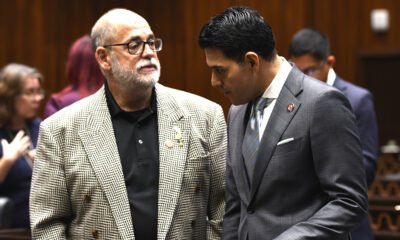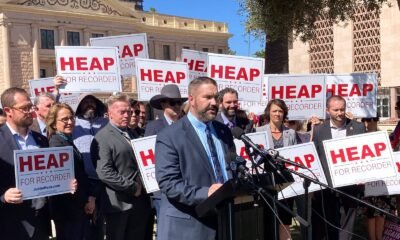ACLU of Arizona
Legal Showdown Looms as Groups Gear Up to Challenge Voter-Approved Abortion Measure

Arizona’s recent election results have set the stage for significant legal challenges surrounding the state’s abortion laws. On November 6, voters approved Proposition 139, which enshrines a right to abortion in the state Constitution, garnering approximately 62% support according to the Associated Press.
The passage of this measure raises questions about how it will interact with Arizona’s existing statutory abortion framework. Critics of Proposition 139 contend that it could complicate or potentially invalidate the state’s established laws, which currently include a 15-week abortion limit, required parental consent, and a ban on mailing abortion medication, among other restrictions.
Richie Taylor, spokesperson for the Arizona Attorney General’s Office, announced that Prop. 139 is set to take effect on November 25, coinciding with the certification of the statewide canvass. He noted, “Like any other constitutional provision, it will supersede any statutory provisions. But litigation may be necessary to determine the specific impact on existing state law.”
Advocacy groups such as the ACLU Arizona and the Center for Reproductive Rights have already indicated plans to ensure that conflicting laws do not remain in force. Victoria López, director of program and strategy for the ACLU of Arizona, stated, “We plan to take action in the coming weeks to implement the state’s new constitutional amendment consistent with the will of the people to protect Arizonans’ rights and freedoms.”
Nancy Northrup, president and CEO of the Center for Reproductive Rights, echoed these sentiments, affirming that the organization will actively work with partners in Arizona to align the state’s abortion laws with public sentiment, whether through litigation or legislative means.
As discussions of potential legal challenges to Proposition 139 arise, the measure itself acknowledged this possibility. It specifies that should the measure face court challenges, the state of Arizona is tasked with defending it. A political action committee has also been granted the authority to initiate or intervene in legal proceedings related to the measure.
Cathi Herrod, president of Center for Arizona Policy, which has played a significant role in advancing abortion restrictions in the state, indicated that it will take time to determine the appropriate steps moving forward. “It’ll take some time to analyze next steps,” she remarked, noting an anticipation for future action.
Prop. 139 establishes that no law or policy may deny or restrict the right to an abortion before fetal viability, defined as the point in pregnancy when the fetus can likely survive outside the uterus without extraordinary medical intervention. The measure does allow for certain laws that serve a “compelling state interest,” particularly those aimed at protecting the health of individuals seeking an abortion.
This constitutional amendment comes on the heels of a protracted legal battle during which Arizona’s abortion laws were challenged, especially amid confusion over a recent 15-week limit and a conflicting 1864 ban. Although the Arizona Supreme Court upheld the antiquated law earlier this year, the Legislature later repealed it, rendering the 15-week limit effective.
The campaign for this constitutional change raised a staggering $35 million, contrasting sharply with the $1.4 million amassed by its opposition, It Goes Too Far, during the election cycle. As the legal landscape shifts, further developments in Arizona’s abortion legislation are anticipated.


















